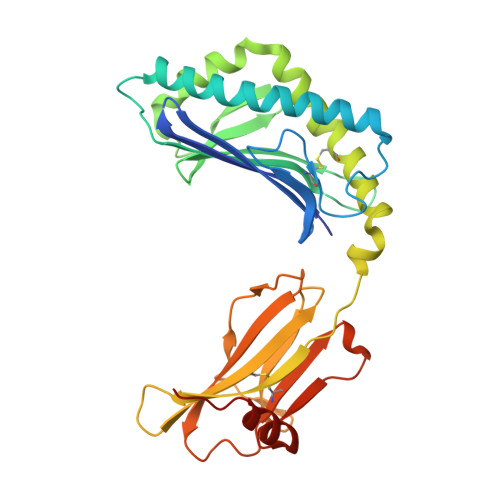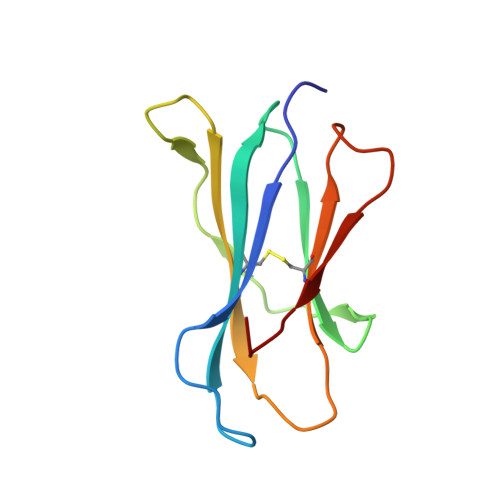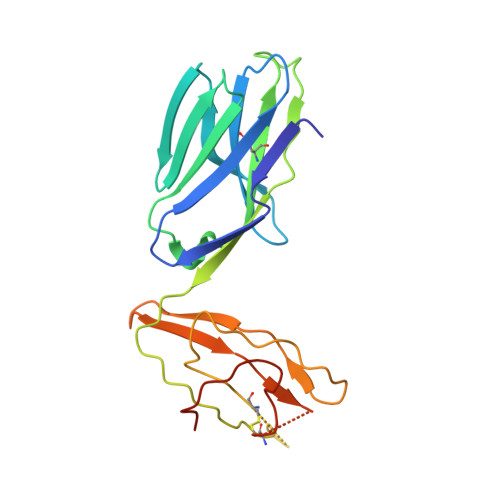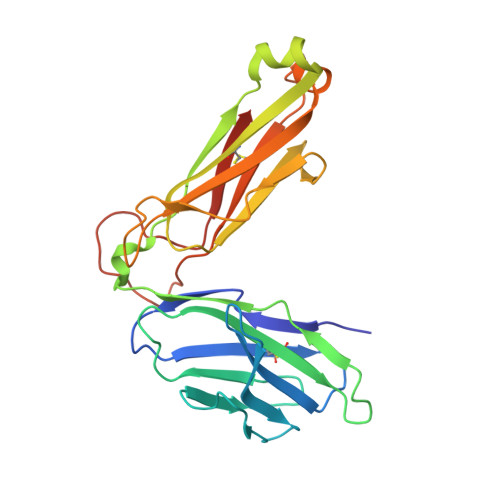Recognition of beta-linked self glycolipids mediated by natural killer T cell antigen receptors
Pellicci, D.G., Clarke, A.J., Patel, O., Mallevaey, T., Beddoe, T., Le Nours, J., Uldrich, A.P., McCluskey, J., Besra, G.S., Porcelli, S.A., Gapin, L., Godfrey, D.I., Rossjohn, J.(2011) Nat Immunol 12: 827-833
- PubMed: 21804559
- DOI: https://doi.org/10.1038/ni.2076
- Primary Citation of Related Structures:
3SCM, 3SDA, 3SDC, 3SDD, 3SDX - PubMed Abstract:
The most potent foreign antigens for natural killer T cells (NKT cells) are α-linked glycolipids, whereas NKT cell self-reactivity involves weaker recognition of structurally distinct β-linked glycolipid antigens. Here we provide the mechanism for the autoreactivity of T cell antigen receptors (TCRs) on NKT cells to the mono- and tri-glycosylated β-linked agonists β-galactosylceramide (β-GalCer) and isoglobotrihexosylceramide (iGb3), respectively. In binding these disparate antigens, the NKT cell TCRs docked onto CD1d similarly, achieving this by flattening the conformation of the β-linked ligands regardless of the size of the glycosyl head group. Unexpectedly, the antigenicity of iGb3 was attributable to its terminal sugar group making compensatory interactions with CD1d. Thus, the NKT cell TCR molds the β-linked self ligands to resemble the conformation of foreign α-linked ligands, which shows that induced-fit molecular mimicry can underpin the self-reactivity of NKT cell TCRs to β-linked antigens.
Organizational Affiliation:
Department of Microbiology & Immunology, University of Melbourne, Parkville, Victoria, Australia.




















